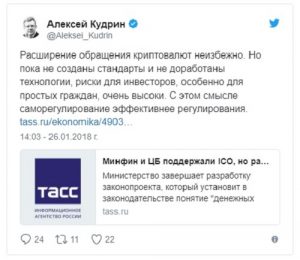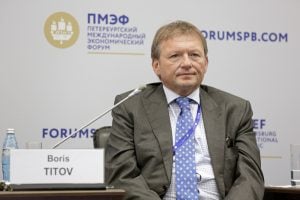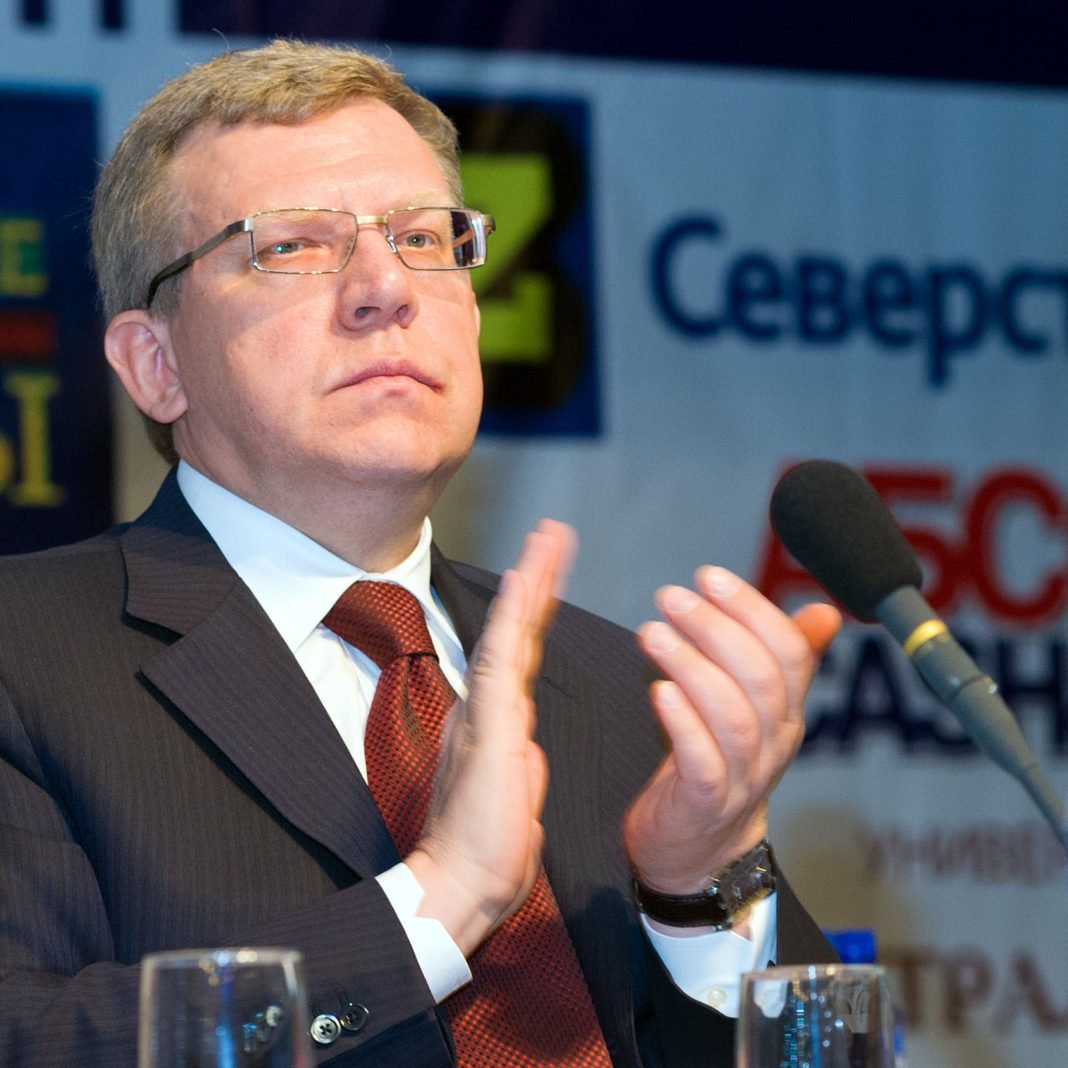Former Russian Finance Minister Alexei Kudrin favors “self-regulation” in the cryptocurrency sector. He believes it will be more effective, at this early stage, than any imposed regulations. Others have expressed similar views about the currently proposed regime. Kudrin shared his opinion on social media, commenting on the latest developments in the crypto debate. The longtime member of Putin’s administration now heads a think tank working on the strategic development of Russia.
Also Read: Calls for “Legal Bitcoin” in Ukraine, as Natsbank Mulls E-Fiat
Inevitable Crypto Future Beyond the Fault Lines
Cryptocurrency circulation will inevitably increase in Russia, but before standards are created and technologies improved, risks are very high for investors, and especially for ordinary citizens, Kudrin warned. “In this respect, self-regulation is more effective than  regulation”, he tweeted. He attached his comment to an article exposing one of several disagreements between the two institutions tasked to set up the legal framework for bitcoin. Kudrin, who served as Russia’s Minister of Finance for 11 years (2000 – 2011), now heads the Center for Strategic Research – a think tank founded on Putin’s initiative, which is mulling strategies for the development of Russia in the next decade.
regulation”, he tweeted. He attached his comment to an article exposing one of several disagreements between the two institutions tasked to set up the legal framework for bitcoin. Kudrin, who served as Russia’s Minister of Finance for 11 years (2000 – 2011), now heads the Center for Strategic Research – a think tank founded on Putin’s initiative, which is mulling strategies for the development of Russia in the next decade.
The debate about cryptocurrency regulation in Russia is going on amidst a pre-election atmosphere. Several fault lines have appeared between the Central Bank of Russia and the Ministry of Finance working together on the new legislation. At times their cooperation looks more like an argument over several aspects of the law. Kudrin’s comment came with the announcement that “Minfin” and “Centrobank” have reached agreement to legalize initial coin offerings but remain diametrically opposed on the legal status that should be attributed to cryptocurrencies like bitcoin.
The Finance Ministry has just published the draft law “On digital financial assets” prepared together with CBR representatives. The bill defines terms like smart contracts and tokens, sets rules for conducting ICOs, and establishes the legal regime for cryptocurrency mining. Exchanging cryptos for rubles, foreign fiat, or other property is the “Apple of Discord”, however. The ministry argues that legalizing widespread crypto transactions would limit law violations, improve transparency for taxation and increase budget receipts. Reluctant to accept this reasoning, Russia’s main monetary authority remains opposed to such legalization of bitcoin and other cryptocurrencies. “They are not backed by anything or guaranteed by any government”, CBR insists.

This is not the first time the two financial authorities have made their crypto disagreements public. They couldn’t get along on the introducing of crypto trade or the idea of a national cryptocurrency. The Ministry of Finance has been pushing for trading cryptocurrencies and their derivatives on Russian exchanges, but the Central Bank does not fully support its initiative. And, when CBR saw potential in the so-called cryptoruble, now delayed, its enthusiasm was not shared by the MF, which called the idea “inappropriate”. Meanwhile, the leading candidate for the Kremlin has been cautiously avoiding “yes” and “no” answers, when questioned by media about the crypto future of Russia. The ambiguity is likely to persist until the presidential election in March.
Voices of Reason From the Sidelines
Both praised and criticized, Alexei Kudrin has been widely credited for steering Russia through the last global financial crisis. Analysts say he pulled that off largely thanks to the Stabilization Fund, believed to be his creation. Considered one of the masterminds of Kremlin’s economic policies under both Putin and Medvedev, Kudrin has been hailed as a “free market champion” and a “fiscal manager of the highest order” by foreign observers.
In Russia he has been praised for paying off a large portion of its debt, while pensions and salaries were going up. Critics say, however, that his liberal visions for the future may hurt Russia’s economy and bring down the standard of living. Nevertheless, Kudrin has been acknowledged for balancing the views of government officials with security background.
 Boris Titov
Boris Titov
In his critique, Kudrin has been joined by another prominent public figure in Russia. The Business Ombudsman Boris Titov also commented on the draft law prepared by the MF and the CBR. They are proposing “much harsher regulation than Japan, Switzerland, Belarus, and Armenia, i.e. the countries that have adopted some legislation so far”, Titov said. “Better not adopt anything”, he added.
Titov is convinced that with the offered legislation Russia will “lose its attractiveness” in the eyes of the crypto community. He also warned that such strict conditions for crypto mining and digital assets circulation will complicate the implementation of the blockchain technology in the country. “It gives people, entrepreneurs and the tech society an opportunity to control government officials – of course they don’t like this”, said Boris Titov, a bitcoin advocate who is also running for the presidency of the Russian Federation.
Do you think that views like those of Kudrin and Titov can influence Russia’s final decision about cryptocurrency regulation? Tell us in the comments section below.
Images courtesy of Shutterstock.
Express yourself freely at Bitcoin.com’s user forums. We don’t censor on political grounds. Check forum.Bitcoin.com.




